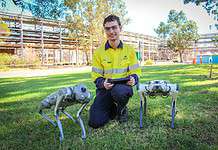 TWO local Alaskan charities will be gifted Rio Tinto’s 19.1 per cent shareholding in Northern Dynasty Minerals, owner of the ambitious Pebble mine project.
TWO local Alaskan charities will be gifted Rio Tinto’s 19.1 per cent shareholding in Northern Dynasty Minerals, owner of the ambitious Pebble mine project.
Rio Tinto’s divestment followed a late 2013 strategic review that concluded the polarising Pebble Project did not fit with its strategy.
The Northern Dynasty shares will be divided equally between the Alaska Community Foundation – to fund educational and vocational training – and the Bristol Bay Native Corporation Education Foundation, which supports educational and cultural programs in the region.
Rio Tinto Copper chief executive Jean-Sebastien Jacques said Rio Tinto had long and historic ties to Alaska and would “continue to see Alaska as an attractive location for potential future investment”.
“By giving our shares to two respected Alaskan charities, we are ensuring that Alaskans will have a say in Pebble’s future development and that any economic benefit supports Alaska’s ability to attract investment that creates jobs,” he said.
Rio Tinto’s divestment was the latest major blow to the Pebble Project, which has the potential to be one of the world’s largest open pit copper mines.
A 2013 study by IHS Global Insight found it would support 15,000 US jobs and contribute more than $2.5 billion annually to US gross domestic product across its lifetime.
In late February, the US Environmental Protection Agency (EPA) initiated a process under the Clean Water Act “to identify appropriate options to protect the world’s largest sockeye salmon fishery in Bristol Bay, Alaska, from the potentially destructive impacts of the proposed Pebble Mine”. EPA administrator Gina McCarthy said extensive scientific study had raised legitimate concerns about the Pebble mine’s significant and irreversible impact on the Bristol Bay watershed and its abundant salmon fisheries.
“It’s why EPA is taking this step forward in our effort to ensure protection for the world’s most productive salmon fishery from the risks it faces from what could be one of the largest open pit mines on earth,” she said.
“This process is not something the Agency does very often, but Bristol Bay is an extraordinary and unique resource.”











































